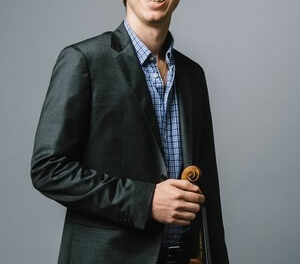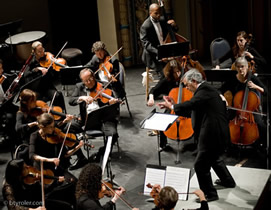People who are fond of the vocal arts are aware that we are most fortunate to live in the Triangle. A generous cluster of very fine choral organizations in the area provides us with a variety of musical fare year after year. One of the premiere groups, Cantari, an ensemble of Voices, conducted by Sue Klausmeyer, presented their first concert of the season at Holy Trinity Lutheran Church with a rare sampling of madrigals, part songs and ayres, and two pieces by Henry Purcell composed for the coronation of King James II.
Not so very long ago, but before recorded music was so easily available, people made their own music in their homes. In the 16th and 17th centuries, madrigals were the big thing. Families and friends gathered to learn and perform for each other. Composers of madrigals explored all kinds of musical techniques around the relationship of words, emotions, and music. Sadness was heard in a descending minor scale, pain, in a sharp dissonance, hope, in an ascending major scale, majesty, in fanfares, and so forth.
The set of six madrigals included on this program were by six different composers representing England, Italy, Germany, and the Franco-Flemish Low Country (today roughly the Netherlands and Belgium).
John Bennet’s “All Creatures Now” employs complex rhythms and counterpoint to underline the frolics of love. Roland d’Lassus (whose name is spelled almost any way you can imagine it, depending on which country the reference is from) used playful and sometimes unexpected rhythms for the humorous “Bon jour, et puis, quelles nouvelles?” (Good day, and then, what news?)
“Amor Vittorioso” (Winning Love) by Giovanni Gastoldi describes love in military terminology and makes clever use of the ubiquitous “fa la las.” Thomas Tomkins’ “Too much I once lamented” makes use of the “fa la las” in a different way, weaving the notes into a sad song of regret with delicious dissonances and ending with a cadence in a bright major.
Hans Leo Hassler almost had us dancing with his setting of “Tanzen und Springen,” in which the joys of walking and talking with beautiful women in the meadow are worth more than silver and gold. The set of six madrigals concluded with Jacques Arcadelt’s exquisite and sensuous “Il bianco e dolce cigno.” (The white and lovely swan). Cantari capitalized on the expressiveness of this music in a performance that was a joy to hear.
Four “part songs and ayres” by John Dowland were sung one voice to a part, accompanied by the very gifted guest artist, lutenist Salomé Sandoval McNut. Jane Thurston, soprano, Adam Smith and Kevin Ramer, tenors, and Kent Brouwer, bass, sang “Fine Knacks for Ladies” a rendition of a peddler’s spiel. “Though all my wares be trash, the heart is true,” he proclaims. The performance had a delightful sense of authenticity about it and was a delight.
Baritone Jeremy Jennings gave a beautiful rendition of “Flow My Tears.” His rich voice sounded almost like a crooner and was enhanced nicely in partnership with the lute. Next McNut sang and played “What If I Never Speed?” It was clear that she is very much at home and comfortable with this music. She charmed us with her marvelous interpretation.
“Can She Excuse My Wrongs?” is one of the four-voice settings from Dowland’s first book of ayres. It was sung by alto Ben Pruitt, tenors Brad Bohannon and Dale Bailey, and bass Eric Dashman and was another winsome performance by these talented singers and the superb lutenist. This was truly an outstanding segment of this creative program put together and prepared by Klausmeyer and the vocalists of Cantari.
The time of Purcell was an era of celebrations, and he was well chosen to write music for the coronation of King James II in 1685. The ceremony opened with his still frequently-sung verse anthem “I Was Glad,” a stately setting of verses from Ps. 122 ending with the Gloria Patri. It follows a homophonic block-chord structure until the closing, which takes off in overlapping imitative patterns until the final cadence.
The cantata “My heart is inditing” was sung immediately after the coronation. The text includes admiration of the Queen’s attire and praise of her fecundity. Purcell made use of strings, an eight-voice choir and eight soloists to provide variety and diversity in the four sections of the cantata and the string introduction and interlude.
The strings and chorus provided a bright and joyous performance. The soloists – Pruitt, Ramer, Bohannon, Smith, Jennings, Brouwer, Dashman, and Cristin Grossi – were all excellent. The concert was characterized by the title “With Flowering Garlands Crowned,” a line from one of the madrigals. It is an apt allusion, and if I may I would suggest that it be applied to this fine chorus and their director.












